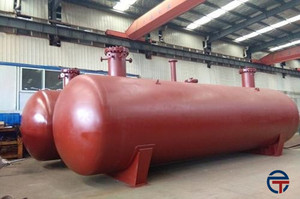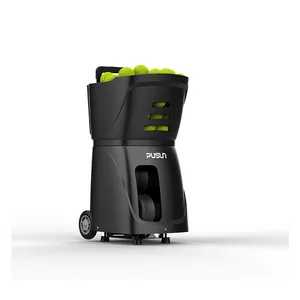Popular in your industry





















































Top categories
About chemical tanker ship
Understanding Chemical Tanker Vessels
Chemical tanker vessels are ships specifically engineered for the conveyance of chemicals and other perilous materials that necessitate stringent handling and storage protocols. These ships are indispensable to entities engaged in the chemical industry's manufacturing, distribution, and commercialization. Chemical tankers are adept at transporting a diverse array of liquid cargoes, ranging from innocuous food-grade substances to highly caustic and poisonous compounds.
Key operators of chemical tanker vessels encompass maritime transport firms, logistics service providers, chemical producers, and enterprises handling chemical production or distribution. These vessels play a pivotal role in the secure and efficient transit of chemicals, mitigating risks to human health, the environment, and the integrity of the transported goods.
Chemical tankers are predicated on the principle of containment, boasting specialized tanks capable of resisting the corrosive and reactive nature of their cargo. These tanks are typically fashioned from stainless steel or comparable durable materials and may be lined with protective coatings to thwart chemical degradation. The design of these ships also integrates various safety mechanisms to avert mishaps such as spills or leaks, which could have grave consequences when transporting hazardous substances.
Varieties of Chemical Tanker Vessels
Chemical tankers are available in multiple forms to accommodate distinct cargo requirements and maritime conditions. The International Maritime Organization (IMO) classifies them based on their structural design:
-
Stainless Steel Chemical Tankers: Favored for the conveyance of substances demanding high purity levels or the transport of specialty chemicals, stainless steel offers exceptional resistance to corrosion, thus preserving product integrity during shipment.
-
Coated Chemical Tankers: These vessels feature steel structures shielded by specialized coatings, adding a protective barrier against corrosive materials. They are typically employed for the transport of agricultural chemicals, petrochemicals, and other substances that may aggressively corrode uncoated metal surfaces.
-
IMO Type 2 Chemical Tankers: Distinguished by their cargo tanks and capacity to handle more hazardous substances than Type 1 tankers, these vessels are equipped for moderately dangerous chemicals and include advanced safety features to safeguard the crew and the environment.
-
IMO Type 3 Chemical Tankers: Capable of carrying a broad spectrum of chemical types and grades, including highly corrosive agents, these tankers are designed to meet rigorous safety standards and may feature specialized systems for managing various chemical classes.
Selecting the Right Chemical Tanker Vessel
Choosing an appropriate chemical tanker vessel is a critical decision for businesses transporting hazardous materials. On Alibaba.com, considerations should include tank capacity, compatibility with the materials, safety features, and operational requisites. The nature of the cargo dictates whether a fleet requires a single-compartment tanker for a specific chemical or a multi-compartment tanker for diverse substances.
Companies should also weigh vessel design elements such as hull material (stainless steel versus coated carbon steel), tank configuration (single versus multi-compartment), and safety apparatus when making their selection. Furthermore, adherence to local and international regulations is crucial for upholding environmental protection standards.
It is vital for businesses to collaborate with suppliers who grasp these factors and can offer advice on choosing a vessel that fulfills their requirements while ensuring safety and compliance with regulations.
Discovering Chemical Tanker Vessels on Alibaba.com
Alibaba.com distinguishes itself as a leading online marketplace for procuring chemical tanker vessels tailored to a wide array of operational demands. The platform's vast network of suppliers presents a variety of chemical tankers, from high-capacity vessels for mass transport to specialized tankers for unique cargoes, providing an effective tool for businesses to find vessels that match their operational needs.
The platform's user-friendly interface enables buyers to sift through options based on material compatibility, capacity, features, and specific keyword searches. This customization ensures that companies can pinpoint vessels that satisfy both their technical and commercial criteria.
Additionally, Alibaba.com's dedication to secure transactions, exemplified by services like Trade Assurance, instills confidence in purchasers. The platform's international scope connects buyers with suppliers worldwide, expanding opportunities for competitive offers and premium vessels that support businesses in the dynamic chemical sector.
Frequently Asked Questions About Chemical Tanker Vessels
What purpose does a chemical tanker vessel serve?
Chemical tanker vessels are designed for the bulk transport of a variety of liquid chemicals, including dangerous materials, ensuring their safe and efficient movement.
How are chemical tanker vessels categorized based on their cargo?
Chemical tanker vessels are categorized according to the nature of their cargo, with different tanker types engineered to carry diverse chemicals, such as acids, alkalis, and other hazardous substances.
What safety features are essential in a chemical tanker?
Essential safety features to consider include double hulls or tanks, inert gas systems, and high-quality materials compatible with the intended cargo. These elements are crucial for preventing spills, safeguarding the crew, and preserving the cargo's integrity.
How does the size of a chemical tanker vessel affect its utility?
The vessel's size determines its cargo capacity and is selected based on the volume of chemicals to be transported. Larger vessels are generally used for transoceanic voyages, while smaller ones may be more apt for regional routes.
Are chemical tanker vessels suitable for both inland and oceanic transportation?
Certain chemical tanker vessels are designed for inland waterways and lakes, while others are equipped for open-sea navigation. The choice hinges on the waterway dimensions and the journey's length.
What materials are commonly employed in constructing chemical tanker vessels?
Chemical tanker vessels are typically constructed from materials like stainless steel, carbon steel, or occasionally aluminum to ensure resistance to transported chemicals and maintain structural integrity.
How can I ascertain the appropriate tanker vessel size for my business?
To ascertain the appropriate vessel size for your business, consider the volume of chemicals to be transported, temperature control needs for sensitive materials, and the vessel's operational range.
Why is an inert gas system significant on a chemical tanker vessel?
An inert gas system is crucial on a chemical tanker vessel to prevent the cargo from reacting with oxygen, which could lead to spontaneous combustion or explosions, especially when transporting flammable materials.
What regulations are applicable to chemical tanker vessels?
Chemical tanker vessels must adhere to international and national regulations, encompassing safety standards, pollution prevention protocols, and certifications to ensure safe operation and environmental protection.
How does temperature control benefit the cargo in chemical tanker vessels?
Temperature control in chemical tanker vessels is vital for transporting temperature-sensitive products without compromising their quality and safety during transit.
What considerations are important when selecting a chemical tanker vessel for different regions?
When selecting a chemical tanker vessel for various regions, it is important to consider the vessel's compliance with regional and international regulations, the types of chemicals typically transported in that area, and the vessel's capability to navigate local waterways.





























